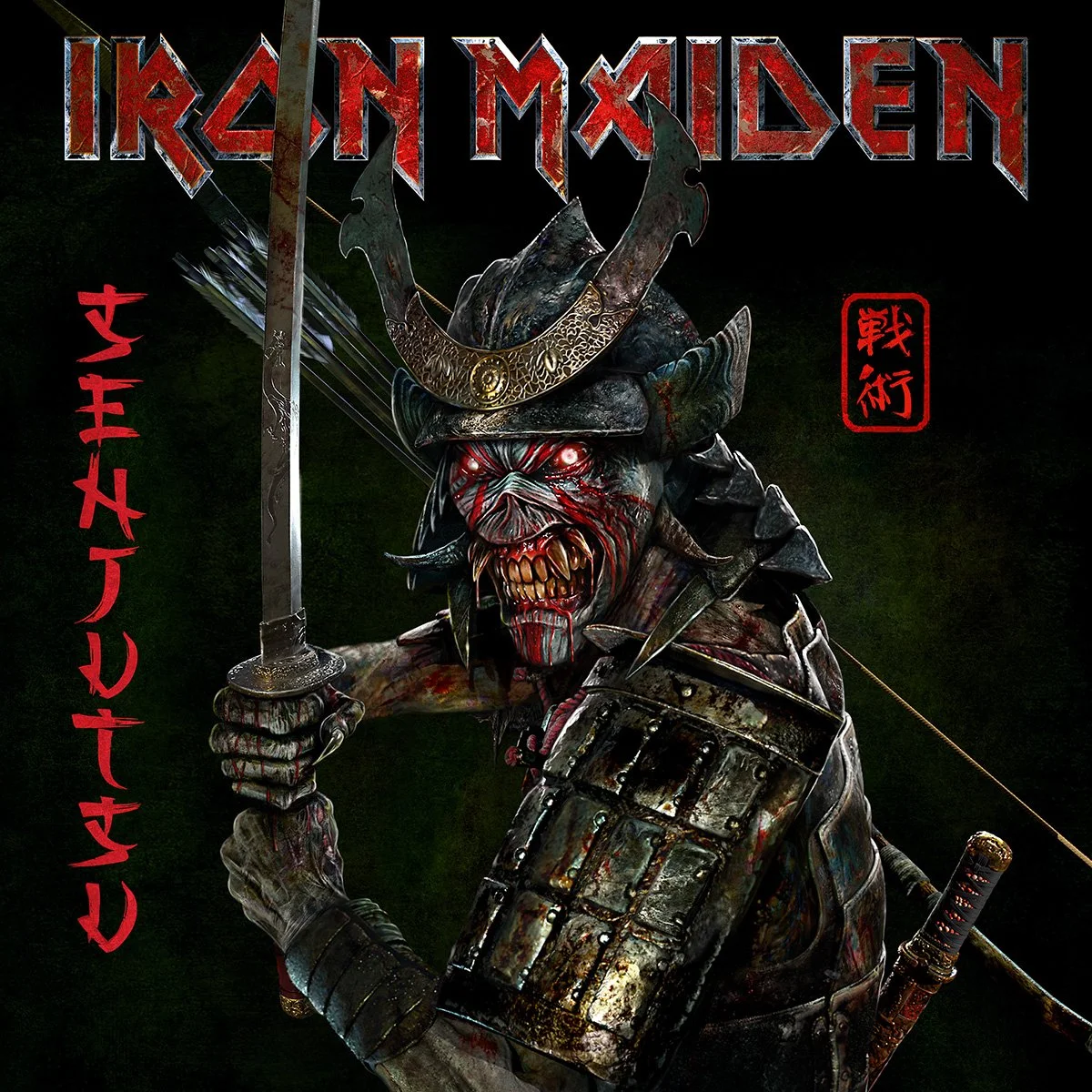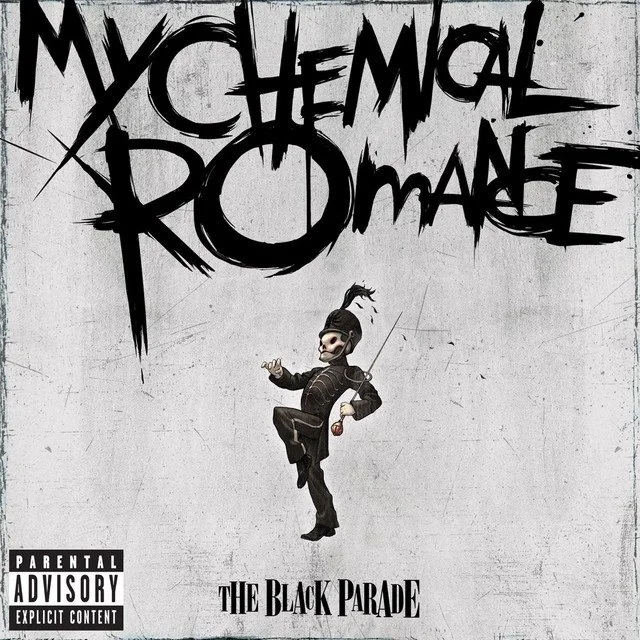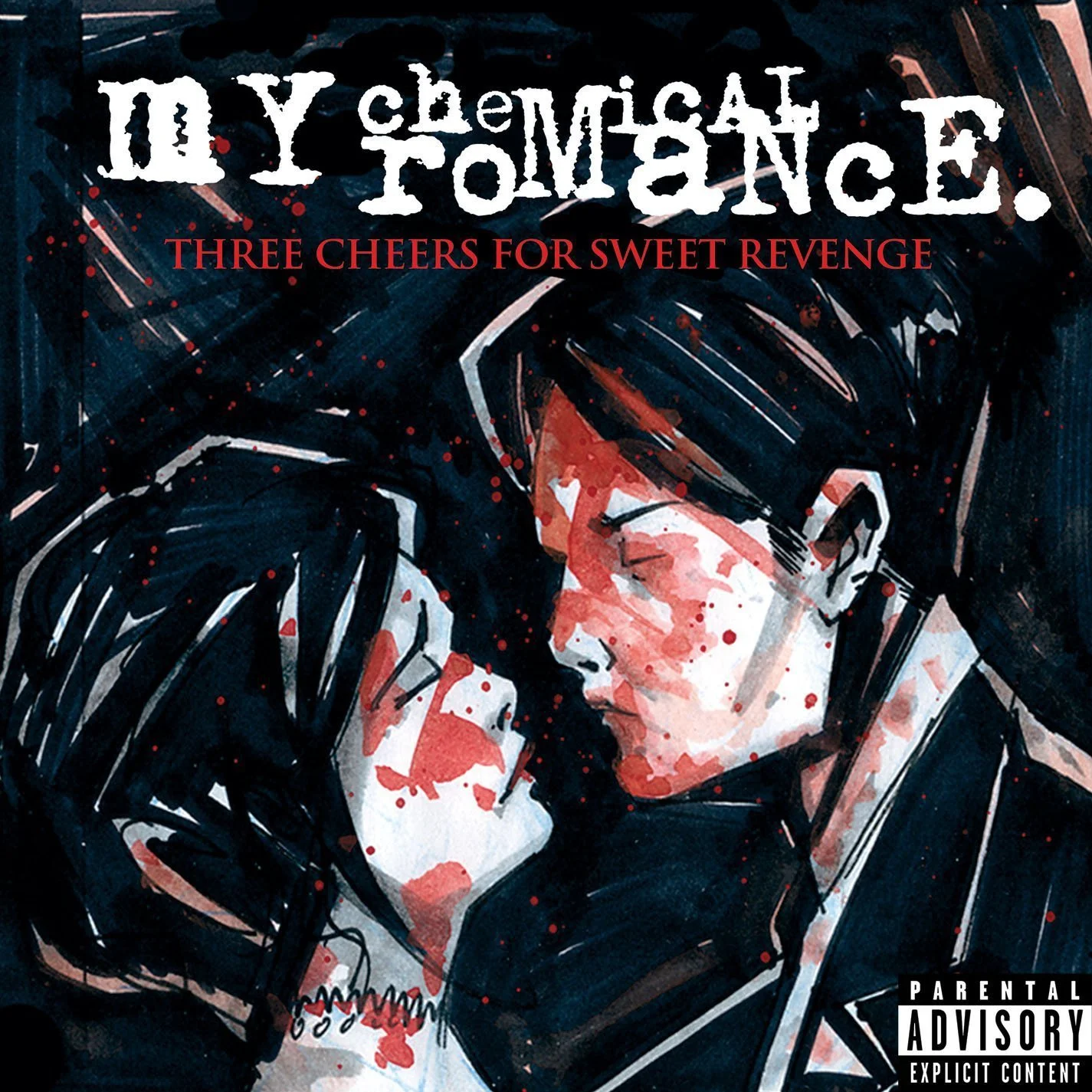Iron Maiden - Senjutsu
Iron Maiden
Senjutsu
Release Date: September 3rd, 2021
Label: Parlophone/BMG
Review by Jared Stossel
There are few bands whose names are synonymous with the term “heavy metal” than Iron Maiden. You could absolutely add Metallica and Black Sabbath into that mix, but when you hear the name Iron Maiden, any image related to the genre that you can possibly think of comes to mind. Skulls (like Eddie, the band’s mascot), headbanging, medieval conquests, battles to the death, war cries, fire, destruction, spell casting, and partying all come to mind when you hear their name. They’re one of the most impressive bands in the genre, and they’ve stood the test of time with seventeen (!) studio albums, each one more ambitious than the last. The band are currently on the road promoting Senjutsu, their latest offering, and a more epic fare than some of the English heavy metallers previous catalogue entries. This time, Eddie the Mascot is dressed a samurai warrior, evoking images of feudal Japan and the fiercely noble miliary nobility of the late 12th century throughout the albums’ track listing. Senjutsu album clocks in at almost an hour and fifteen minutes, their longest album yet. There may be only ten tracks, and the songs have more of a bouncing feel than the headbang-inducing tracks you’ll find on The Number of the Beast, but this album packs a heavy punch. There’s almost a galloping feel to these songs, akin to an army of soldiers riding horseback on their way into battle.
The album’s eponymous opening track signals its beginning with what sounds like a concert bass drum, more like something you’d find perched in the percussion racks of a symphony orchestra than behind the kit of a drummer at a rock show. Immediately, there’s a feeling of grandiosity to Senjutsu, the crunch of the guitars building in tow with the fiercely booming drum rhythm. Vocalist Bruce Dickinson sounds better than ever on this album, with “The Writing On The Wall” showcasing one of the finest performances he’s given on a Maiden record. “Stratego” introduces the aforementioned “galloping pace that I referred to earlier in the piece, while the epic and sprawling “Writing on the Wall” opens with a classical guitar strumming pattern that feels like we’re in the midst of an Ennio Morricone-scored Western soundtrack, guns drawn as the warriors prepare to fight for their lives. The opening guitar riff has a little bit of a country twang to it, before evolving into the metal-infused Maiden we’ve come to know and love.
“Lost In a Lost World” is one of Senjutsu’s longest entries, coming in at nearly ten minutes, feeling more like a piece of film score than anything we’d hear from the band. A lightly strummed guitar chord ruminates over a reverberated vocal line from Dickinson, a harmonious chorus adding an emotional weight to the song before the crunch of the guitar kicks in. The track changes tempo frequently, speeding up and slowing down in various sections of the song, erring a little more on the progressive side of Maiden’s catalogue. “Days of Future Past” is a sweepingly epic entry on Senjutsu, giving fans a taste of that sweet arena-ready heavy metal feel that the band’s legions of fans have become accustomed to over the years. “Days of Future Past”, to me, has a bit of a comic book feel to it, which is ironic; one of the most iconic X-Men storylines shares the same name as this song, but that could just be my nerdy interpretation of this.
Things are brought to a slower pace with the opening of “The Time Machine”, which builds into a larger than life opus at it traverses onward, with an excellent guitar solo from Janick Gers added into the mix. The conclusion of “The Time Machine” officially marks the halfway mark of Senjutsu, which leads into “Darkest Hour”, a track that if released in the 80s would have easily led to the raising of many lighters into the night sky. It’s not quite a ballad, but it’s probably the closest Maiden will ever get to conjuring up one. Again, Dickinson’s vocals are immaculate, shining through on one of the album’s best choruses. “Death of the Celts” features the band at what I think is their best musicality-wise; every member is firing on all cylinders, and you get lost in the way they play their instruments. Iron Maiden is comprised of some of the best players in the genre, and I feel that they’re a bit underrated when discussing the heavy metal landscape. “Celts” finds every member of the English sextet completely in harmony with one another, nearly half of the song letting them shine through. There’s even a synthesizer accompaniment, one that you can just barely make out in the background, but it adds so much layer to the song. Kevin Shirley, the album’s producer and mixer, does a great job of helping each individual track shine and stand out amidst the chaos.
Senjutsu’s penultimate track, “The Parchment”, takes the philosophies showcases throughout the chorus of the album and doubles down, a far-reaching, twelve-minute composition that finds Maiden at their most ambitious. A track like this might feel bloated or like it’s doing too much, but Iron Maiden are one of the few acts, particularly in the world of metal, that can pull it off with ease. The album’s concluding track, “Hell on Earth”, brings Senjutsu to a fitting end, the battle won as the warriors ride off into the sunset. Another day, another landscape conquered in the ongoing voyages of Eddie and Iron Maiden.
Iron Maiden
www.ironmaiden.com
www.facebook.com/ironmaiden
Twitter: @IronMaiden
Instagram: @ironmaiden


